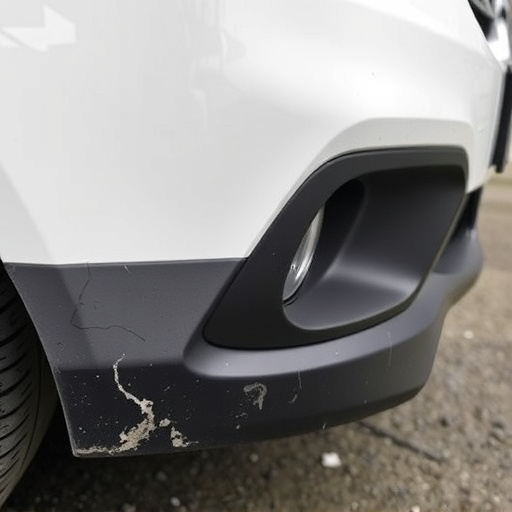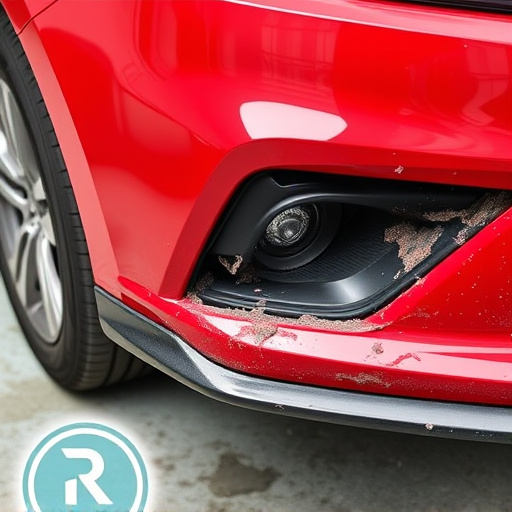Mercedes' Electronic Stability Control (ESC) is a critical safety feature that relies on accurate wheel speed sensor data to prevent skidding and loss of traction, ensuring safe handling. When these sensors malfunction due to extreme conditions or wear, immediate Mercedes electronic stability repair from specialized collision repair services is vital. Skilled technicians use advanced tools for diagnosis and precise repair/replacement, adhering to manufacturer standards to enhance vehicle safety and performance.
Mercedes owners can expect a smooth ride thanks to its advanced Electronic Stability Control (ESC) system. However, wheel speed sensor issues can disrupt this balance, compromising vehicle safety. These sensors are crucial for ESC’s real-time calculations, ensuring stable cornering and preventing skids. When these sensors malfunction, a Mercedes electronic stability repair is essential. Understanding the common issues and the repair process is vital for maintaining optimal vehicle performance and passenger safety.
- Understanding Mercedes Electronic Stability Control (ESC) System
- Common Wheel Speed Sensor Issues and Their Impact on ESC
- The Repair Process for Enhanced Vehicle Safety
Understanding Mercedes Electronic Stability Control (ESC) System

Mercedes’ Electronic Stability Control (ESC) system is a sophisticated safety feature designed to enhance vehicle stability and handling. It constantly monitors wheel speed differences, detecting and mitigating loss of traction or skidding. ESC intervenes by applying individual brakes and adjusting engine power to help steer the car back onto its intended path during critical driving situations. This dynamic system is crucial for maintaining control in tight corners, on slippery surfaces, or during sudden evasive maneuvers.
When issues arise with the wheel speed sensors, the ESC may not function optimally. This can lead to a Mercedes electronic stability repair requirement. Proper collision repair services specializing in car bodywork and ESC recalibration are essential to address such problems. Skilled technicians use advanced diagnostic tools to identify sensor malfunctions, ensuring the ESC system operates at peak efficiency for optimal vehicle safety and performance.
Common Wheel Speed Sensor Issues and Their Impact on ESC

Wheel speed sensors are integral components of a vehicle’s anti-lock braking system (ABS) and electronic stability control (ESC). When these sensors start to malfunction, it can have significant implications for driver safety. Common issues include sensor failure due to environmental factors such as extreme temperatures or road debris, loose connections leading to intermittent readings, or internal component wear.
In a Mercedes vehicle, ESC relies on accurate wheel speed data from each corner to make instantaneous adjustments to individual wheel brake applications and engine torque delivery. If the system detects discrepancies in wheel speed signals, it may interpret this as loss of traction or a skid, triggering corrective measures even when the driver is not experiencing any such condition. This can result in erratic handling, increased braking distances, and a compromised driving experience. Therefore, addressing wheel speed sensor issues promptly through professional Mercedes electronic stability repair at a reputable vehicle body shop or collision center is crucial for maintaining optimal vehicle safety and performance.
The Repair Process for Enhanced Vehicle Safety

The repair process for Mercedes electronic stability control systems is a critical step in enhancing vehicle safety. When issues with wheel speed sensors are identified, it’s crucial to address them promptly. Skilled technicians employ specialized diagnostic tools to pinpoint the problem, whether it’s a faulty sensor or underlying software errors. Once diagnosed, the next step involves meticulous repair or replacement of the faulty component(s). This process ensures the system functions optimally, providing enhanced stability and control during various driving conditions.
A reputable collision center or dedicated Mercedes service center is equipped to handle these repairs effectively. They employ advanced techniques and tools for dent removal and vehicle restoration, ensuring the stability control unit is restored to its peak performance. By adhering to manufacturer standards, these centers guarantee not only the safety of your Mercedes but also maintain its overall operational efficiency.
Mercedes vehicles rely heavily on their electronic stability control (ESC) system for safe handling, making prompt attention to wheel speed sensor issues crucial. Common problems in these sensors can significantly impact ESC functionality, posing potential safety risks. Fortunately, a well-executed Mercedes electronic stability repair process ensures enhanced vehicle stability and driver confidence. By addressing wheel speed sensor failures, owners can rest assured their vehicles are equipped to handle various driving conditions, providing peace of mind on the road.














